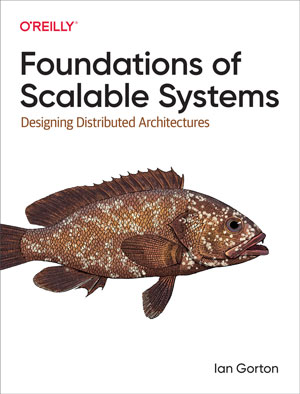In many systems, scalability becomes the primary driver as the user base grows. Attractive features and high utility breed success, which brings more requests to handle and more data to manage. But organizations reach a tipping point when design decisions that made sense under light loads suddenly become technical debt. This practical book covers design approaches and technologies that make it possible to scale an application quickly and cost-effectively.
Author Ian Gorton takes software architects and developers through the principles of foundational distributed systems. You’ll explore the essential ingredients of scalable solutions, including replication, state management, load balancing, and caching. Specific chapters focus on the implications of scalability for databases, microservices, and event-based streaming systems.
You will focus on:
- Foundations of scalable systems: Learn basic design principles of scalability, its costs, and architectural tradeoffs
- Designing scalable services: Dive into service design, caching, asynchronous messaging, serverless processing, and microservices
- Designing scalable data systems: Learn data system fundamentals, NoSQL databases, and eventual consistency versus strong consistency
- Designing scalable streaming systems: Explore stream processing systems and scalable event-driven processing
More about the author
Ian Gorton, Ian Gorton is the director of computer science master’s programs and a professor of the practice at the Khoury College of Computer Sciences at Northeastern University’s Seattle campus. He is passionate about analyzing and designing complex, high-performance distributed systems and embodying design and architecture principles in methods and tools that can be exploited by architects in other projects.
Before joining Northeastern in 2015, he was a senior member of the technical staff at the Carnegie Mellon University Software Engineering Institute. He had several projects on the principles of designing massively scalable software architectures for big data applications and building knowledge bases both manually and using machine learning to support engineering tasks. Before this, Gorton was a laboratory fellow in computational sciences and math at Pacific Northwest National Laboratory (PNNL). He managed the Data Intensive Scientific Computing research group and was the chief architect for PNNL’s Data Intensive Computing Initiative. He was also PI for multiple projects in environmental modeling, carbon capture and sequestration, and bioinformatics. This experience has led to a particular interest in the design of large-scale, highly customizable cyber-infrastructures for scientific research.
All content is for demonstration purposes, we do not store files, please purchase the printed version of the magazine after reading.
